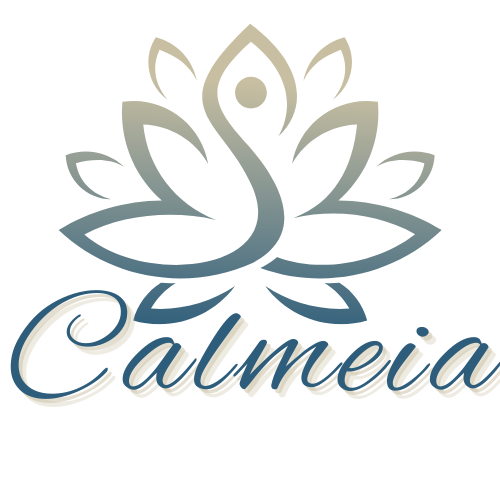Impact of Music? Hey everyone! Have you ever wondered about the magic that music can weave in our lives, especially for us women? It’s not just about those catchy tunes that get us dancing; there’s so much more happening beneath the surface, particularly in our brains. Today, let’s explore this enchanting world of music and its profound impact on women’s brain health.
From the melodies that enhance our memory to the rhythms that soothe our souls, music has this incredible ability to touch every aspect of our being. But did you know that for us women, music can be an especially powerful tool? It can help in balancing our hormones, managing stress, and even keeping our minds sharp as we age.
In this chat, we’re going to unwrap the layers of how music influences our mental, emotional, and neurological well-being. Whether it’s the calming strums of a guitar easing our anxious minds or the upbeat tempo of a pop song boosting our workout, music is there, playing a pivotal role in our health and happiness.

So, grab your headphones, get comfy, and let’s embark on this journey together. We’ll discover how those harmonies and beats aren’t just pleasant to our ears but are also working wonders in our brains. Trust me, by the end of this, you’ll see your playlists in a whole new light!
Enhancing Cognitive Functions
Let’s dive into something truly fascinating – how music can boost our brain power, especially for us women. Did you know that tuning into certain types of music can actually sharpen our minds? It’s like giving your brain a workout, but way more enjoyable and relaxing!
Here’s the scoop: When we engage with music, whether it’s playing an instrument, singing, or just listening, our brain lights up like a Christmas tree. Various areas, especially those involved in memory, attention, and problem-solving, get a good dose of stimulation. For us women, this is particularly intriguing because it could mean enhancing our multitasking abilities and improving our memory – super handy in our daily lives, right?
Think about those times when you’re listening to a classical piece or even some jazz – it’s not just background noise. That music is actually nudging your brain to focus better and process information more efficiently. It’s like those notes and rhythms are having a little dance with your neurons, helping them to connect and communicate more effectively.
And here’s another cool bit: studies suggest that women might have a slightly different response to music than men, potentially making us more receptive to these cognitive benefits. So, the next time you’re working on a challenging task or trying to memorize something, try putting on some instrumental or classical music. You might just find that it helps you concentrate better and think more clearly.
So, let’s give a round of applause to the power of music in enhancing our cognitive functions. It’s not just about the pleasure of listening; it’s about the incredible ways in which music supports and strengthens our mental capabilities. Whether it’s remembering where you left your keys or solving a complex problem at work, a little melody in the background might be just what your brain needs!
Emotional Processing and Expression
Now, let’s tune into another beautiful aspect of music and its impact on us women – the emotional processing and expression. Have you ever noticed how certain songs can make you feel deeply, bringing out emotions you didn’t even know you had? Well, there’s a whole science behind it, and it’s especially significant for us ladies.
Picture this: You’re listening to a song, and suddenly, you feel a wave of emotion – maybe it’s joy, nostalgia, or even a touch of sadness. This is because music has the power to tap into our emotional centers, triggering the release of various neurotransmitters like dopamine and serotonin. These are the feel-good chemicals in our brain that uplift our mood and can even provide a sense of comfort and relief.
For women, this emotional connection to music can be particularly strong. Our brains might be wired to respond more intensely to musical stimuli, making music a potent tool for emotional expression and management. It’s like each melody speaks a language that our heart understands intimately, helping us process and express our feelings in a way that words alone sometimes can’t.
And let’s not forget about the role of music in managing stress, anxiety, and depression. On days when you’re feeling a bit overwhelmed or blue, turning on your favorite tunes can be like self-administering a dose of emotional medicine. It can lift your spirits, provide a sense of release, and bring about a sense of balance and calm.
Moreover, music can be a fantastic companion for meditation and mindfulness practices. It helps in creating an environment conducive to relaxation and introspection, allowing us to explore our inner landscape and understand our emotions more deeply.
So, next time you find yourself swaying to a melody or getting lost in a song, remember that it’s not just a pleasant experience – it’s a profound interaction between the music and your emotional well-being. Embrace these moments, let the music resonate with your feelings, and see it as a beautiful, natural way to understand and express yourself. Music isn’t just food for the soul; it’s a language for our emotions.
Impact on Hormonal Balance

Let’s strike a chord on another fascinating note – how music can harmonize our hormonal balance, particularly for us women. It’s like finding a natural, melodic way to ease some of the unique hormonal challenges we face throughout our lives.
Have you ever felt a sense of calm wash over you while listening to your favorite song? Well, that’s not just relaxation; it’s science in action. Music has the power to lower cortisol levels, which is our body’s main stress hormone. For women, who often ride the rollercoaster of hormonal fluctuations due to menstrual cycles, pregnancy, or menopause, this can be incredibly significant.
Here’s how it works: When we listen to music that we find soothing or enjoyable, our brain waves align with the rhythm, and this synchronization can lead to a reduction in stress and anxiety. It’s like the music is telling our body, “Hey, it’s okay to relax now.” This reduction in stress can have a positive impact on our hormonal balance, promoting a sense of well-being.
And the beauty of this is in its simplicity and accessibility. Whether it’s classical melodies, soft jazz, or even nature sounds, the right kind of music can act as a natural regulator for our hormonal health. It’s like having a personal tuner for our internal hormone orchestra, helping to keep everything in harmony.
Furthermore, this musical influence on hormonal balance can be particularly helpful during specific phases of life. For instance, calming music can be a great ally during the premenstrual phase, helping to ease symptoms of PMS. During pregnancy, soothing tunes can help manage stress levels, which is beneficial for both the mother and the developing baby.
So, next time you’re feeling a bit off-balance, maybe a little stressed or anxious, consider turning to music. Create a playlist of tunes that bring you peace and joy, and let them work their magic on your hormonal well-being. It’s a natural, enjoyable way to support your body and mind, keeping those hormonal highs and lows in check with the power of melody and rhythm.
Therapeutic Use in Neurological Disorders
Now, let’s delve into a truly remarkable area – the role of music in aiding women who are navigating the complexities of neurological disorders. It’s like discovering a melodious key to unlock parts of the brain that need healing and support.
Did you know that music therapy has shown incredible promise in managing symptoms of neurological conditions such as Alzheimer’s and Parkinson’s diseases? These conditions can be particularly challenging, and interestingly, they may present differently in women compared to men. This is where the power of music comes into play, offering a therapeutic touch that’s both gentle and potent.
Picture how music, with its rhythmic and melodic qualities, can stimulate the brain in unique ways. For someone facing a neurological challenge, engaging with music – be it listening, singing, or even moving to the rhythm – can activate various parts of the brain. This activation can lead to improved cognitive function, better motor skills, and even enhanced emotional well-being.
In the case of Alzheimer’s, for instance, music can be a bridge to memories that seem lost. Women with this condition often show remarkable responses to familiar tunes, pink noise, reigniting sparks of recognition and joy. It’s like the music reaches into hidden corners of memory, bringing forth forgotten moments and feelings.
For conditions like Parkinson’s, where movement can be a struggle, music can set a tempo that guides physical movement. The rhythm can provide a cue for steps or movements, helping to improve mobility and coordination. It’s fascinating how a melody can translate into smoother, more controlled physical actions.
And let’s not forget the emotional aspect. Dealing with neurological disorders can be an emotional rollercoaster, not just for the individual but for their loved ones too. Music can offer a soothing escape, a moment of peace in the midst of a challenging journey.
So, if you or a woman you know is grappling with a neurological condition, consider exploring the world of music therapy. It’s not just about the joy of music; it’s about harnessing its therapeutic qualities to support and enhance brain health. Let the melodies and rhythms be a source of comfort, strength, and healing on this journey.
Enhancing Brain Plasticity
Let’s hit a high note on a really intriguing aspect of music’s impact on our brain health – enhancing brain plasticity. For us women, this is especially cool because it means music can help our brains adapt and change, which is super important during different phases of our lives, like pregnancy, motherhood, or even menopause.
Think of brain plasticity like a muscle that gets stronger and more flexible the more you use it. Music, with its complex structures and emotional depths, is like a full-on workout for your brain. When we engage with music, whether it’s learning a new instrument, singing, or even just actively listening, we’re giving our brain a fantastic exercise session.
Here’s the thing – women’s brains are often jugglers, managing multiple tasks and roles. Music can support this by enhancing cognitive flexibility and improving our ability to switch between tasks. It’s like being a DJ in your own brain, smoothly transitioning between different tracks of thought and action.
And there’s more! During pregnancy, for example, the brain undergoes significant changes, and music can be a great ally. Listening to or playing music can not only be a relaxing activity but also support the brain as it rewires itself for motherhood.
As for the golden years, as women transition into menopause, brain plasticity becomes even more crucial. Music can be a valuable tool in keeping the brain engaged and active, helping to maintain cognitive functions and even ward off age-related decline.
So, if you’re looking for a way to give your brain a boost, consider incorporating more music into your life. It’s not just about the enjoyment; it’s about leveraging the power of melodies and rhythms to keep your brain agile and resilient. Think of it as tuning your brain’s instrument to play the beautiful symphony of life with grace and agility.
Music and Menstrual Cycle Mood Swings

Let’s tune into a topic that’s particularly relevant for us women – the impact of music on managing mood swings associated with our menstrual cycles. It’s fascinating how melodies and rhythms can play a role in smoothing out the emotional rollercoaster we often ride each month.
Have you ever noticed how certain songs can lift your spirits or calm your nerves during those times of the month when everything feels more intense? That’s music working its magic on our hormones and mood. The menstrual cycle brings along a whole host of hormonal changes, and these fluctuations can have a significant impact on our emotions. Music, with its soothing beats and harmonies, can be a gentle, yet powerful tool in balancing our mood.
Here’s what happens: When we listen to music we enjoy, our brain releases dopamine, the ‘feel-good’ hormone. This can be especially beneficial during the premenstrual phase when we might be feeling a bit down or irritable. The right kind of music can act like a natural mood enhancer, giving us a much-needed emotional lift.
But it’s not just about dopamine. Relaxing music can also help lower cortisol levels, the stress hormone, which often spikes during the menstrual cycle. So, by choosing calming tunes, we’re not just entertaining our ears, we’re actively contributing to a more balanced emotional state.
And let’s not forget about the power of music to distract us from discomfort. Whether it’s cramps, headaches, or just the general unease that can come with menstruation, getting lost in a good playlist can provide a welcome break from focusing on how we’re feeling physically.
So next time you find yourself riding the hormonal waves of your menstrual cycle, consider turning to your music library. Whether it’s upbeat tunes to boost your mood or mellow melodies to soothe your nerves, music can be a wonderful, natural ally in managing those monthly mood swings. It’s like having a personal therapist right in your playlist!
Music as a Tool for Social Connection
Now, let’s explore a beautiful aspect of music that resonates deeply with many of us women – its power to forge social connections. Music isn’t just a personal experience; it’s a communal one that can bring us together in unique and meaningful ways.
Think about the last time you sang along with friends, attended a concert, or even participated in a group dance or music class. There’s something incredibly bonding about sharing music. It’s like a universal language that bridges gaps, creates communal experiences, and fosters a sense of belonging and togetherness. For women, this can be especially powerful, as many of us value and thrive on social connections and emotional sharing.
Music can create a sense of community, whether it’s a local choir, a band, or a casual jam session with friends. These gatherings aren’t just about the music; they’re about the shared experience, the laughter, the stories, and the support that comes from making music together. It’s a space where women can express themselves, share their emotions, and feel validated and connected.
In many cultures, music is a cornerstone of social gatherings and celebrations, often led and enjoyed by women. It’s a way to preserve traditions, share cultural heritage, and bring generations together. The songs of our mothers and grandmothers carry stories and wisdom passed down through the ages, connecting us to our roots and to each other.
Moreover, for women facing challenges such as loneliness, depression, or even the transitions of aging, musical communities can offer a lifeline. They provide not just an artistic outlet but also a network of support and friendship. In these spaces, music becomes more than sound – it becomes a thread that weaves individuals into a tapestry of communal support and connection.
So, if you’re looking for a way to enrich your social life and emotional well-being, consider diving into the communal aspects of music. Join a choir, start a band, or simply gather with friends for a musical evening. Let music be a bridge to deeper connections, shared joy, and a stronger sense of community. It’s not just about the notes and rhythms; it’s about the hearts and lives that they touch.
Impact on Exercise and Physical Health
Let’s hit play on another key aspect of music’s influence, particularly for us women – its impact on exercise and physical health. You know that extra boost you feel when your favorite upbeat song comes on during a workout? That’s music doing more than just entertaining you; it’s enhancing your physical performance.
Think about how the right playlist can transform your whole exercise experience. Upbeat, energetic tunes can motivate you to push a little harder, run a little faster, or hold that yoga pose a bit longer. It’s like having a personal trainer in your ear, encouraging you to reach your fitness goals.
But it’s not just about motivation. Music can actually change our perception of how hard we’re working. With a great track playing, what might normally feel like a strenuous workout can seem more like fun, and less like hard work. This is especially beneficial for women, who often juggle multiple responsibilities and might find it challenging to stay committed to a fitness routine.
There’s also the aspect of rhythm and coordination. Music with a strong, steady beat can help in synchronizing our movements, making exercises like running, cycling, or dancing feel more fluid and enjoyable. It’s like the rhythm of the music helps to guide our bodies, making us more efficient in our movements.
And let’s not forget the post-workout benefits. Slower, calming tunes are perfect for cool-down sessions, aiding in relaxation and recovery. This can be particularly helpful for women, as it ensures a balanced approach to fitness, combining intensity with necessary relaxation and recovery.
Incorporating music into your exercise routine can be a game-changer. Whether it’s a high-energy playlist for your cardio sessions or soothing melodies for your yoga practice, music can enhance the experience, making it more enjoyable and effective. So, next time you’re lacing up your sneakers or rolling out your yoga mat, don’t forget your headphones. Let the power of music fuel your body and energize your workouts. It’s not just exercise; it’s an experience!
Music Therapy during Pregnancy
Moving to a melody that resonates with a very special time in many women’s lives, let’s explore the role of music therapy during pregnancy. It’s like a gentle symphony for both the mother and her developing baby, offering benefits that echo beyond the womb.
Picture a soon-to-be mom, perhaps you or someone you know, creating a peaceful environment with the sound of soothing music. This isn’t just about relaxation; it’s about fostering a connection with the unborn child and supporting both their developments. Research suggests that the calmness a mother experiences while listening to music can be shared with her baby, promoting a sense of well-being for both.
During pregnancy, a woman’s body and mind go through significant changes, and music can be a comforting companion through this journey. Gentle, calming tunes can help alleviate some of the stress and anxiety that often accompany pregnancy. It’s like a musical hug, providing comfort and reassurance during times of uncertainty or nervousness.
But the benefits don’t stop there. Engaging with music during pregnancy can also stimulate the baby’s brain development. Soft melodies and harmonious tunes can be the first building blocks in a baby’s auditory experiences, laying a foundation for future learning and emotional connections.
Incorporating music into prenatal care isn’t just a soothing experience; it’s a bonding activity. Singing lullabies, playing calming music, or even attending prenatal music therapy sessions can strengthen the emotional bond between a mother and her child. It’s like initiating a dialogue with the baby before they even enter the world.
So, for expectant mothers, consider making music a part of your prenatal routine. It’s a way to nurture yourself and your baby, creating a tranquil and harmonious environment for both of you. Let the melodies soothe your soul and the rhythms rock your little one to sleep, building a bond that’s as deep as it is musical.
Cultural and Societal Influences
As we continue our exploration of music’s impact on women’s brain health, let’s delve into the cultural and societal influences that shape this relationship. Music is not just a collection of notes and rhythms; it’s a reflection of our cultural identities and societal roles, resonating differently with women across various backgrounds.
Think about the diverse ways in which music is experienced and integrated into women’s lives around the world. In some cultures, music is a central part of traditional ceremonies and celebrations, often led by women. These cultural practices are not just about entertainment; they’re a means of storytelling, preserving history, and expressing communal values. For women in these societies, music can be a powerful way to connect with their heritage and reinforce their sense of identity.
But it’s not just about tradition. In our modern society, music also plays a role in how women navigate their daily lives and express themselves. For instance, in many parts of the world, women use music as a form of social commentary, giving voice to their experiences and struggles. It’s a way to challenge societal norms, advocate for change, and empower themselves and others.
Let’s also consider the therapeutic applications of music in diverse social settings. For women dealing with trauma, displacement, or social marginalization, music therapy can offer a means of healing and emotional expression. It’s a universal language that transcends cultural barriers, providing a safe space for women to process their experiences and emotions.
Moreover, the way women interact with music can be influenced by societal expectations and gender roles. In some cultures, women’s participation in music may be restricted or dictated by social norms, impacting their access to the benefits music offers. Recognizing and addressing these disparities is crucial in ensuring that all women can harness the power of music for their mental and emotional well-being.
So, as we appreciate the melodies and harmonies that fill our lives, let’s also acknowledge the cultural and societal tapestries that they weave. Music is a mirror of our world, reflecting the diverse experiences of women and offering a unique window into their lives and minds. It’s a celebration of diversity, a tool for empowerment, and a testament to the resilience and creativity of women everywhere.
Conclusion
As we draw the curtains on our exploration of music and its impact on women’s brain health, it’s clear that the symphony of benefits is as diverse and rich as the music itself. From enhancing cognitive functions and aiding in emotional expression to supporting hormonal balance and fostering social connections, music emerges not just as a source of entertainment, but as a powerful ally in women’s mental and emotional wellness.
We’ve seen how music can be a comforting companion during the various stages of a woman’s life – be it in managing the emotional rollercoaster of menstrual cycles, embracing the journey of motherhood, or navigating the complexities of neurological conditions. The universal language of music speaks to us in myriad ways, touching our lives and nurturing our brains in the most harmonious ways possible.
So, whether you are someone who finds solace in the soft strums of a guitar, gets energized by the upbeat tempo of pop tunes, or feels connected through the cultural rhythms of traditional music, embrace the power of these melodies and harmonies. Let music be your therapy, your motivator, and your companion in the journey of life.
As we conclude, I encourage you to keep exploring the world of music and its myriad benefits. Remember, each note, each beat, and each melody holds the potential to enhance your brain health, uplift your spirits, and enrich your life. Keep the music playing, and let its rhythm guide you to a healthier, happier you.
Additional Resources
To further enhance your journey with music and its impact on brain health, let’s explore some additional resources that you can tap into. Whether you’re looking to deepen your understanding or simply find more ways to integrate music into your life, these resources can be invaluable.
- Music Therapy Organizations and Websites: Explore organizations like the American Music Therapy Association or similar bodies in your country. They offer a wealth of information on music therapy, including research, case studies, and how to find a certified music therapist.
- Playlists and Music Apps: Dive into platforms like Spotify, Apple Music, or YouTube for curated playlists designed for relaxation, focus, or workout. Many of these platforms also offer playlists based on mood, which can be great for managing hormonal fluctuations or menstrual cycle mood swings.
- Online Courses and Workshops: Look for online courses or workshops on music therapy, the use of music for emotional well-being, or even classes on learning an instrument. Websites like Coursera, Udemy, or local community colleges can be good places to start.
- Books and Podcasts: For those who love to read or listen, there are numerous books and podcasts on the power of music. Titles like “This Is Your Brain on Music” by Daniel J. Levitin or podcasts like “The Music Therapy Chronicles” can offer deeper insights.
- Community Music Groups: Joining a choir, band, or music club can be a great way to connect with others through music. Check community centers, local schools, or social media for groups near you.
- Exercise and Dance Classes: Look for local exercise or dance classes that incorporate music. Styles like Zumba, aerobics, or even yoga with music can make physical activity more enjoyable and effective.
- Music and Pregnancy Resources: For expectant mothers, resources on prenatal music therapy and the use of music for fetal development can be found in pregnancy wellness centers or online parenting forums.
- Cultural Music Experiences: Engage with cultural music experiences, whether through local cultural festivals, concerts, or travel, to understand and appreciate the diverse roles of music in different societies.
- YouTube Channels: Amazing Sound Escapes; Meditation Serenity
Remember, the journey with music is personal and ever-evolving. Feel free to explore, experiment, and find the musical paths that resonate most with you. These resources are just a starting point – your exploration can lead you to many more discoveries and enriching experiences with music.



